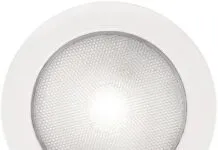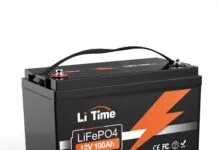Are there any significant differences in the quality of an OEM Yanmar Oil Filter and a Fram filter from K-Mart?
Warren Milberg
1986 Hunter 28.5
Deale, Md.
One
Practical Sailor contributor, the manager of a custom boatbuilding and repair/refit yard, had this reply: “Not all filters are created equally: There are differences from filter to filter. We see no problem using after-market filters whose reputations are proven: brand names such as NAPA, Wix (Wix actually manufactures NAPAs Silver and Gold series filters), Fleetguard (owned by Cummins Filtration), and Baldwin to name a few.
“If you have a failure and the engine manufacturer points a finger at the filter maker, you have a better chance of obtaining restitution from a well-established manufacturer than one with a brand thats been relabeled for chain stores.
“As far as filters and other after-market parts are concerned, your rights as a consumer are protected by the Magnuson-Moss Warranty Act of 1975. In short, it says, no warrantor of a consumer product may condition his written or implied warranty of such product on the consumers using, in connection with such product, any article or service (other than article or service provided without charge under the terms of the warranty)…
“This means that if an engine manufacturer claims that you must use OEM filters, or oil for that matter, or the warranty is void, he must either provide these products at no charge or he is in violation of this law. If you suffer a failure within the warranty period and the manufacturer asserts that its a result of the filters or oil youve used, the onus is on them to prove that this is true, and if they do so, then you have a strong case with the manufacturer of the filter.
“Boatyards use after-market fuel and oil filters on a regular basis and rarely have issues with them. The issues typically involve the dimensions of the filter itself. On occasion, the after-market filter is larger (not a bad thing, larger often means more filter media is inside) than the OEM part. Other than that, its simply never presented a problem for us. The difference in price, even for the exact same part depending upon where its purchased, can be considerable. We recently installed oil filters on a diesel engine thats no longer in production. The one remaining dealer sells the appropriate filter for over $100.”
While this advice is purely anecdotal,
Practical Sailorhas cut open many fuel and oil filters to analyze their contents, and in doing so, weve discovered that often, higher-quality after-market filters have more pleats or media than the OEM equivalent. As most folks know, few engine manufacturers make their own filters.
So, why can’t you purchase the same filter, with a different label and get the same results for a fraction of the price? You can, however, you must observe some guidelines. Just because a filter screws onto the engines threaded boss doesn’t mean its the right filter. It must be properly cross referenced. This information is available in catalogs available from filter makers. The filter must be capable of providing the correct filtration as well as proper flow rate and by-pass valve pressure release (when an oil filter becomes dirty, it will allow the oil to bypass the filtration media because dirty oil is better than no oil at all) as well as an anti-drain back capability if thats called for in a particular application (horizontal or inverted filters for instance).
































